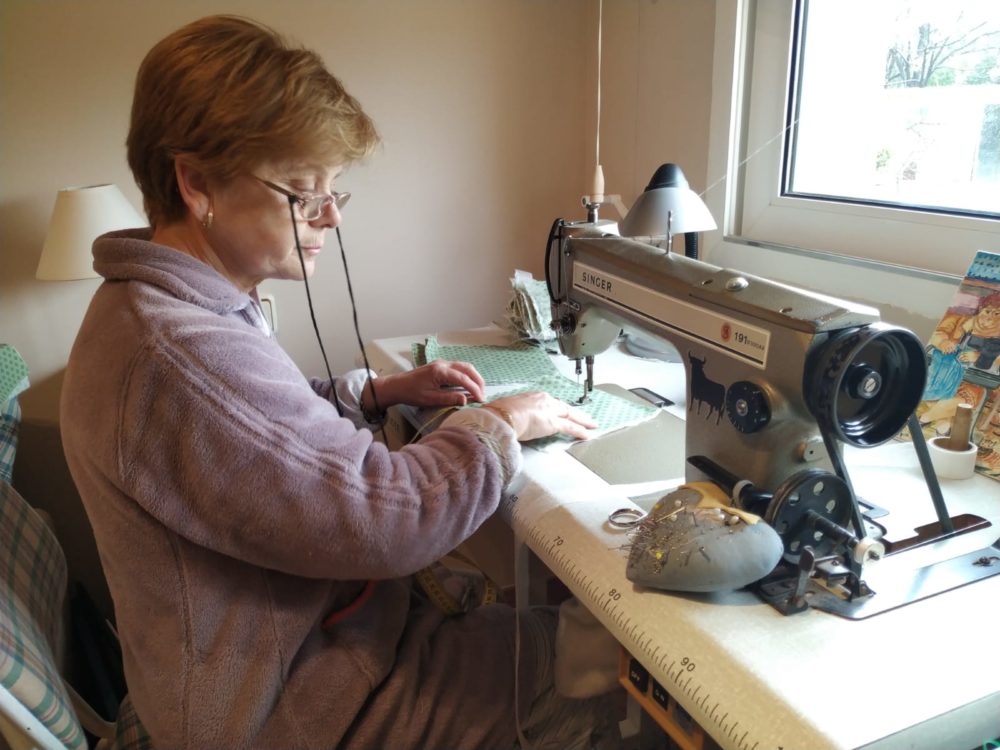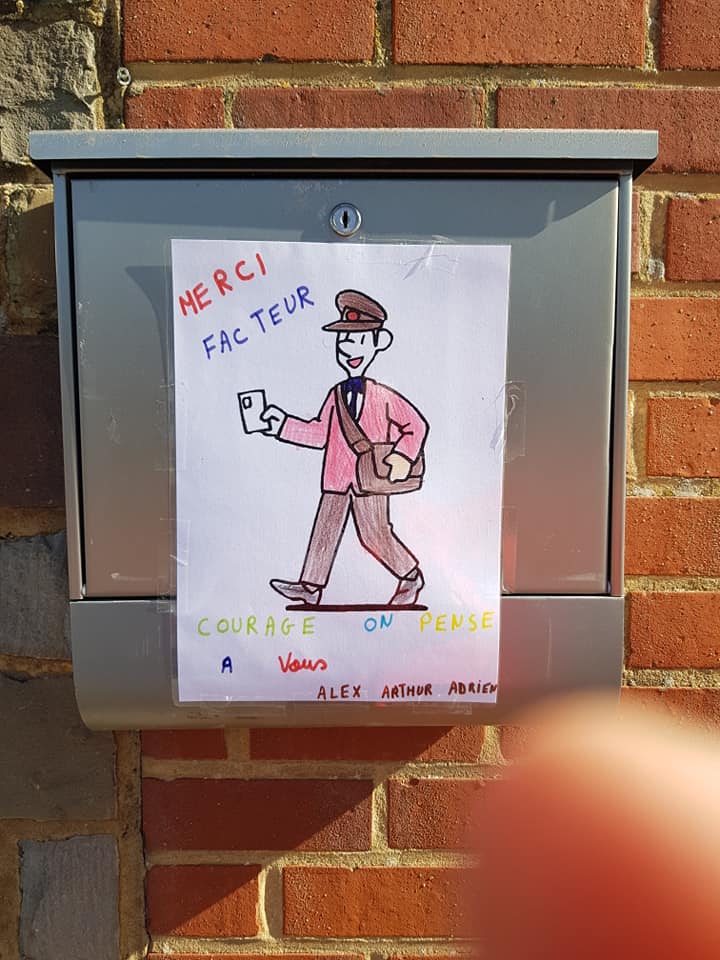It’s been described as the biggest peacetime crisis to face Europe for 75 years. Yet, when the Covid-19 pandemic hit, our EU leaders were caught flat-footed, and were soon floundering and overwhelmed as the death toll rises and unemployment goes through the roof.
EU solidarity to member states impacted by the coronavirus outbreak hasn’t just been slow. At times, it was an unedifying spectacle as member states wrangled over budgets and bonds whilst our citizens lay dying, and our essential workers risked their lives to treat us, transport us and feed us. We have set out here what needs to happen policy-wise at EU level to respond to this crisis – a massive, coordinated European Emergency Response Plan. However, faced with this emergency, and a mostly inadequate response at both EU and national levels, people are building their own collective response.
People-to-people solidarity – between friends, neighbours, within communities and in towns and cities across Europe – has flourished. Here, we are going to showcase some glimpses of true EU solidarity, big and small, that continue to inspire and help carry us through this moment with hope that another Europe is possible.
Communities coming together
In the absence of state action, grassroots groups have mobilised to support their neighbours, especially people without nearby family, elderly people, and people with a disability or long-term health condition such as cancer, diabetes and chronic lung disease. Known as mutual aid groups, they help people to fetch their groceries, walk their dogs, pick up prescriptions or simply have a chat over the phone or Skype if they were feeling lonely or frightened.
Incite, a network of radical feminists of colour, has put together a set of principles of community accountability that are guiding many of the mutual aid groups based on the principles of transformative justice. Among them, a commitment to ongoing development of all members of the community, and the community itself, to transform the political conditions that reinforce oppression and violence.
A group of volunteers in Brussels has also been organising the distribution of daily meals for health workers who have been forced to do overtime shifts during the emergency. The hashtags #prenonsSoinDesAutres #ZorgVoorElkaar have already been shared widely in encouraging people to share their own acts of kindness. In Dublin, as in many other cities, restaurants have been giving free meals to the homeless.
Meanwhile, volunteers in Germany have set up a platform to coordinate direct people-to-people assistance. Services on offer include grocery shopping, babysitting and other forms of day-to-day support. People registering their requests on the platform are linked with volunteers in their area offering these services.

Defending our public services
After years of austerity and threats of privatisation, hospitals have struggled to access basic equipment such as face masks for doctors and nurses. Workers in essential services that have continued to operate during the pandemic, such as supermarket staff, have also been affected. Faced by this situation, a group of Belgians put out an appeal on social media for volunteers to help make face masks at home. This DIY tutorial gives detailed instructions on how these can be made, for example. Even prisoners have joined the effort, sewing 2,000 face masks in a short period.
Similar initiatives are taking place right across Europe. In Spain, a community of “makers” – 3-D printing aficionados – are collaborating to 3D print ventilators and face masks. They’ve created a website to mobilise members of the community, CoronavirusMakers.org, and their Telegram channel already counts 15,000 volunteers. Their initiative does not stop at Spain’s borders. They have shared their models with “makers” from other countries so that similar initiatives can spring up elsewhere.
In Italy, 8,000 doctors have signed-up to volunteer in the worst-hit regions. Thousands of ordinary citizens in member states have signed up to help overcrowded hospitals. In Germany, migrant and refugees have responded to a government appeal for help in hospitals and in farms.
Supporting frontline workers
Many of the most precarious and low paid workers in society have continued to work during the pandemic as governments deemed their work ‘essential’ to keep countries running. There has been greater public debate, and visibility on social media, about the way these workers have been treated in the past, creating momentum in their long fight for better working conditions.
In recognition of their work, families are leaving messages of thanks on their post boxes to people delivering their mail, or clapping to thank health workers every day at 8pm. With the spike in online shopping, Amazon workers are calling for strike actions to protest against the corporation’s continued disregard for the health and safety of its poorly-paid workers. People across the world are standing in solidarity with them, using the hashtag #BoycottAmazon, joining in on one-day boycott actions and cancelling their Prime accounts.

In Greece, networks that have been sprung up since the 2008 financial crisis have returned and intensified their work to support the already battered communities. Solidarity for All, part of a solidarity economy movement, runs a network of solidarity healthcare clinics, food solidarity structures and solidarity kitchens, “without middlemen” networks, immigrant solidarity networks and cooperatives.
Rather than requesting economic assistance, Solidarity for All asks people to “adopt” collective initiatives and forge direct connections of mutual support. This has been crucial for Greece’s ageing population, who sometimes rely on help from volunteers to access food, hygiene and other errands.
People-to-people solidarity
Local governments have also played an important role in forging community solidarity, working with local organisations and volunteers. The Municipality of Rafina – Pikermi, which was plagued by Greece’s fires of 2018 that devastated much of the region, has set up a solidarity and support structure for citizens, with a call-center under the slogan “Stay home, we are here for you”. People have called the line for medical support, home distribution of necessary medical equipment and food. The Municipality has also set up a psychological support helpline as part of the initiative.
Small businesses have been hit hard by the crisis, with many risking closure. In Thessaloniki, for example, local volunteers have come together to save a pastry shop at the threat of closure by ordering lots of pastries, eggs, pies, juices, which were then distributed to the locals.
Across Europe, people have been leaving notes at the entrance of buildings and on announcement boards offering help with grocery shopping and support for elderly and disabled people. Two members of the local community in Ptolemaida, Greece made available tablet computers so that people in hospital isolation could remain in contact via video link with their families.
The cultural community, which were among the most affected by austerity cuts, have offered concerts, book readings, classes and theatre plays through their social media channels to combat isolation and loneliness, and to help people stay connected.
Let us know what is happening where you live and we will keep updating this article!
